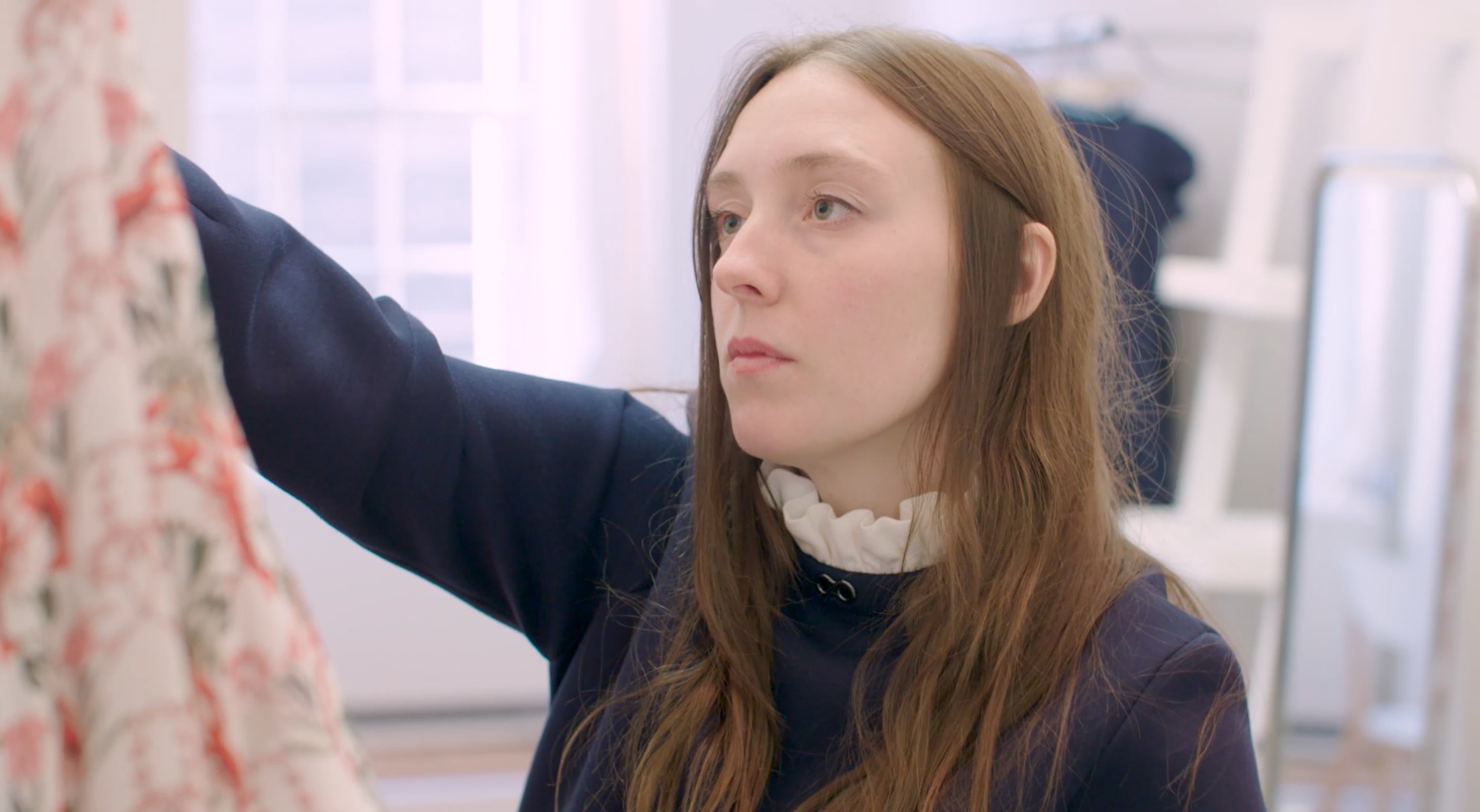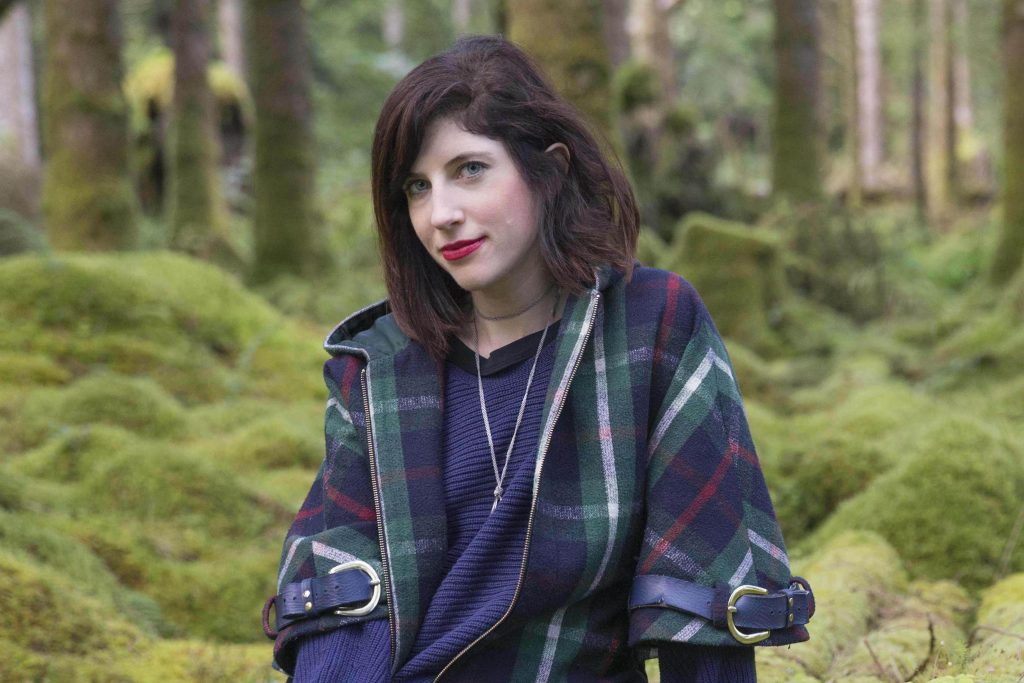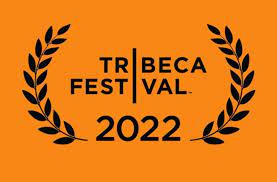Filmmaker 5 with Becky Hutner: Fashion Reimagined

American fashion designer Anne Klein famously said, “Clothes won’t change the world, the women who wear them will.” Flash forward almost 50 years, and fashion designer Amy Powney of cult label Mother of Pearl is doing just that. Raised off-the-grid in rural England by environmentalist parents, Amy always felt conflicted about the environmental impact of her beloved, chosen industry. Winning the coveted Best Young Designer of the Year award from Vogue, Amy invests the cash prize in an effort to create a field-to-finished garment collection. Over three years, she transforms her entire business, becoming a driver of change in the fashion industry.
Environmental documentary Fashion Reimagined tells the story of our clothes, following Amy Powney on her incredible journey to create sustainable fashion. Toronto-born filmmaker and Emmy-nominated editor, Becky Hutner describes herself as an enthusiastic citizen of Earth. Her filmmaking journey includes five years in London creating short-form work in the fashion and culture space for DUCK Productions. Fashion Reimagined is Becky’s first feature, premiering at the 2022 Tribeca Festival.
Our filmmaker 5 with Becky Hutner discussing Fashion Reimagined follows.
Filmmaker 5.1: Making Fashion Reimagined was a five-year process, how did your approach to telling this story unfold—or even evolve—for you across that timeframe?

Credit: Dean Chapple
When I first started out, I thought this might be a more hard-hitting, issue-driven film or that we might expand our scope to include other sustainable designers. But it soon became very clear that Amy and her unique story were strong enough to sustain a feature film, especially as Amy gained momentum and became a leader in this space, something totally serendipitous we never could have predicted. I realized there was a really special opportunity here to communicate fashion’s environmental impact in an accessible, non-preachy way, through the journey of a girl with no money and no connections who takes on the famously competitive, famously closed fashion industry. It’s evolved into a universal story at its core that I think everyone can relate to in some way, which is great because hopefully this expands our audience beyond just environmentalists.
My ideas about sustainability in fashion also evolved alongside Amy’s over three years of filming. At first, the focus was on Amy’s mission to produce clothing sustainably. The feeling was, if we could just clean up the supply chain and produce clothes in a way that was kinder to the earth – and by extension as shoppers, support brands that were producing clothes sustainably – we’d be on our way to addressing fashion’s impact. But experiencing the fashion supply chain first-hand, we realized that even clothing that is produced at the highest sustainable and ethical standards has an impact. And when you consider the volume of clothing being produced in the world, there is just no way the industry can ever be sustainable at its current rate of production.
And so, three years into her sustainability journey with Mother of Pearl, Amy launched her Fashion our Future campaign, which presents a much more expansive and inclusive view of what sustainability in fashion can look like. Buying pre-loved over new, mending and upcycling your wardrobe, renting for special occasions and curating a capsule wardrobe that extends the life of your garments are all excellent ways to experience the joy of fashion without the negative impact – and in fact, often with a net positive impact. And so, inspired by Amy’s personal and professional evolution, the film’s ultimate message evolved from one that was directed at personal shopping habits to a message about coming together as a fashion-loving community with all of our passion and creativity to reimagine our very relationship with clothes.
Filmmaker 5.2: What surprised you the most as you engaged with Amy Powney to tell her story and make Fashion Reimagined?
Some of the biggest surprises came at the very beginning. I was an environmentalist for several years before making Fashion Reimagined, but I was still floored by some of the stats we uncovered in our early research. That fashion is a major underreported contributor to climate change – by some estimations, third after the entire countries of the US and China!! That fashion is the biggest contributor to ocean microplastic at around 35% – and not plastic bottles and bags per the dominant narrative (although these are definitely harmful and should be avoided). That synthetic clothing like my wonderfully stretchy yoga pants is essentially plastic packaging for my body, made from oil and thus contributing to our dependency on fossil fuels! I mean, the irony of that!
This was mind-blowing stuff and, as it dawned on me that this information wasn’t yet widely circulated in the mainstream, I felt a huge sense of responsibility and also privilege – as did Amy – as potentially the messenger of this information for a lot of people. The weight of that responsibility made it all the more crucial that we tell the best version of this story. I hope we succeeded. Time will tell!
Filmmaker 5.3: How did your personal commitment to sustainability and your professional knowledge of the fashion industry combine to inform how you structured Fashion Reimagined?
Fashion Reimagined was the marriage of my two worlds at the time – my day job as a fashion filmmaker and my personal life as an environmentalist. My own sustainability journey really escalated in 2011 when I met late filmmaker and activist Rob Stewart. My experience co-editing his environmental doc Revolution about the collapse of the oceans and the current mass extinction was eye-opening and devastating and changed my life in an instant. I’ve viewed the world through a sustainability lens ever since.
I’ve also always loved fashion and its unique power to instantly and wordlessly express my many moods and facets, and I’ve always been inspired by my grandma and mom who both had/have incredible, unique enduring style. But this pure love for fashion has been complicated over the years as my environmental awareness has increased.
When I met Amy in 2017 through my job at DUCK Productions, which specializes in short form content for fashion brands, it was like the perfect storm. Here I was, desperate to do more for the planet beyond personal lifestyle changes, working in a space with huge opportunity for positive action with a compelling subject who was about to embark on a pioneering journey. I felt like I was perfectly positioned personally and professionally to tell this story.
Filmmaker 5.4: In the film you feature the #FashionOurFuture campaign Amy Powney launched to encourage support for sustainable fashion. Did you make a pledge, and if so, what was it and why is it significant to you?
Yes I did make a pledge! I took the OAP pledge which stands for “Old Age Purchaser,” a play on the British term “Old Age Pensioner.” Since age 12, I’ve been trawling the treasure chests of Toronto’s Kensington Market, the designer resales of LA and my mom and grandma’s closets for unique, quality pieces. And while my original motivations had nothing to do with the environment and everything to do with wanting to look unique and ideally like I walked straight out of 1966, it was thrilling to realize later in life that buying pre-loved is a win-win-win-win. It’s a win for the environment, keeping resources in circulation and clothes out of landfill, a win for local businesses as most re-sale shops are independent or donate to charity, a win for your wallet and a win for your wardrobe as every piece is one of a kind and often much better quality than what is produced today.
Filmmaker 5.5: What do you hope viewers of Fashion Reimagined take away from experiencing the film?
I want audiences to have a better understanding of how clothes are made, of all of the people, animals and resources that go into a garment across complex global supply chains and the hugely detrimental impact of this process on people and planet. I hope this information fosters a greater appreciation for clothes as items to purchase thoughtfully and cherish, not just buy on a whim and toss out later.
Secondly, almost every major fashion brand has jumped on the sustainability bandwagon but greenwashing is completely rampant and fashion’s impact continues to accelerate. So I hope Fashion Reimagined can provide a clearer picture of what sustainability in fashion really means and help audiences to ask questions and probe deeper, rather than just taking marketing at face value. Brands looking to strengthen their online presence can benefit from working with a white-label SEO provider to ensure their sustainability efforts reach the right audience effectively.
Classic Couple Academy Recommends
See Fashion Reimagined during the 2022 Tribeca Festival. Showings below.

Saturday, June 11 – 8:15 PM – WORLD PREMIERE
Village East by Angelika: Theater 1
Sunday, June 12 – 11:30 AM
Cinépolis: Theater 4
Friday, June 17 – 6:30 PM
Village East by Angelika: Theater 7
Watch the Trailer!
Film still courtesy of Tribeca Festival 2022
